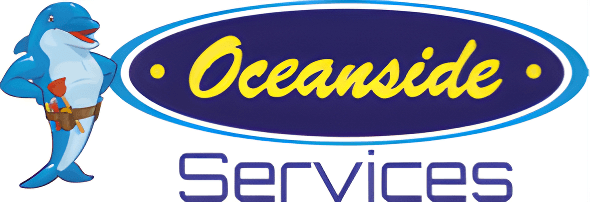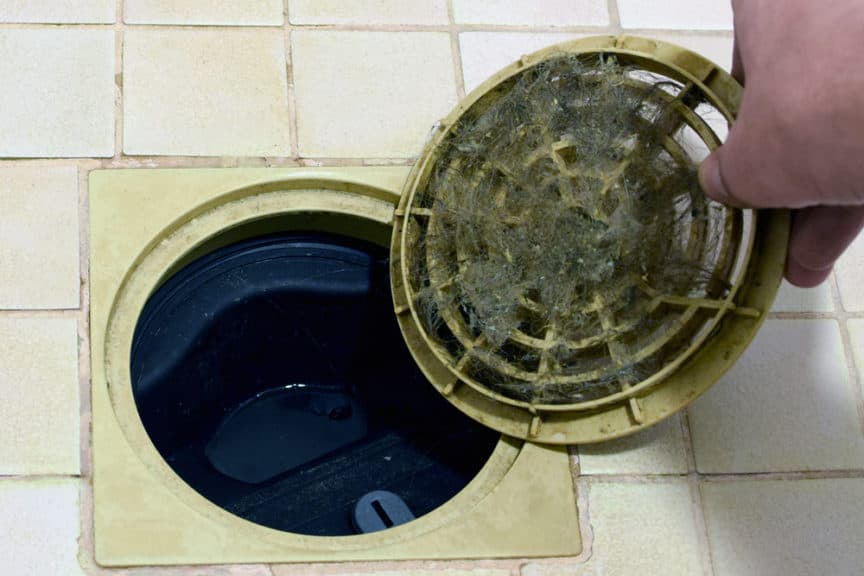Is your sink backing up, your bath slow to drain or your toilet not clearing when you flush? These are all common signs that there’s some sort of blockage in your drainage system – the network of pipes that safely takes wastewater and sewage away from your home.
Unfortunately, blocked drains are a common problem for homeowners across Queensland and northern NSW. Luckily, help is at hand!
In this article we identify the most common causes of a blocked drain, as well as the preventative measures you can take to reduce the likelihood of a blockage developing. We also look at some DIY unblocking techniques, that can work well for some blockages.
If you’re suffering from the harmfull effects of recurring blockages, or have a stubborn blocked drain that you can’t clear yourself, the professionals at Oceanside Services can quickly and competently solve the problem.
Common causes of blocked drains
Detailed below are some of the most frequent causes of blockages in the drainage system, as well as some top tips to keep your drainage pipes free of blockages compile by your trusted plumber.
Hair
Once hair gets into the drainage system, it provides a mesh in which small particles of detritus can become trapped. This quickly leads to a blockage, which can be particularly stubborn to remove.
Fitting your bath and shower with hair traps (these are available for a few dollars at most hardware stores) is the best way to ensure hair shed during bathing and washing is appropriately disposed of.
Wipes, cotton wool, cotton buds and other bathroom detritus
It’s all too easy for bathroom waste to end up flushed down the toilet. Sanitary towels, baby wipes and similar products are too large to move comfortably down the sewage pipe, increasing the risk they will get stuck and form a blockage.
We recommend enforcing the “three ps” rule in your household – only pee, poo and paper should be flushed down the toilet.
Tree roots
Tree roots are naturally drawn to water. If there are any structural weaknesses in your sewage network, tree roots will attempt to penetrate into the pipe, creating an unwanted blockage.
Homeowners should ensure that larger trees and shrubs are located well away from the outside drain and the property, to reduce the risk of root incursion. In addition, pipes should be regularly inspected (every five years, at a minimum, using a cable-mounted camera, to check for any damage inside the pipe.
Grease and food fragments
Pouring hot fat down the drain, or allowing bits of fat to be washed down the sink along with washing up water is a recipe for disaster. Once exposed to the cool sewage pipes, fat will quickly solidify, creating a deposit that’s extremely difficult to shift. Unfortunately, fat doesn’t respond particularly well to DIY unblocking. In most cases, the fat blockage needs to be broken down and removed mechanically.
As well as taking care to dispose of grease and oil appropriately, if you regularly use large quantities of fat (or operate a commercial kitchen), we recommend installing a grease trap. It’s also worth investing in traps for the plug hole in your kitchen sink, to prevent food scraps and other detritus from finding their way into the drainage system.
Toys and other unusual objects
It’s very common for plumbers to come out to investigate a blocked toilet, only to find that the blockage is caused by a toy dinosaur or some other item that one of the smaller members of the family has flushed away.
The easiest way to prevent this scenario is simply to supervise small children in the bathroom, as well as ensure that items that could easily be flushed away are kept out of reach.
How do you unblock a badly blocked drain?
The best way to unblock a badly blocked drain depends on what’s causing the blockage, as well as how stubborn the blockage might be. As a general rule, blockages may be either mechanical or chemical in nature.
Mechanical blockages, such as toys or toiletries, can sometimes be fished out, using a drain snake. Alternatively, they may loosen when suction is applied through the use of a plunger. If the item is tightly wedged, however, professional assistance is normally needed.
Blockages that are chemical in nature (commonly fat bergs or similar) may be removed through the use of hot, soapy water, or proprietary drain cleaner. These options can work for smaller blockages, but a larger one (particularly if the fat has tangled with hair to form a solid mass), will usually need to be removed professionally.
How do you unblock a drain fast?
The speed at which a drain can be unblocked depends on a number of variables. These include:
- the size of the blockage
- the nature of the blockage
- the location of the blockage
- how long the blockage has been there
As a general rule, if you can spot the early signs of a blockage, it’s easier to rectify the issue quickly, as the blockage is likely to be fairly small and easier to break up. Simple measures such as pouring boiling water down the drain, or supplementing the hot water with bicarb and vinegar, may provide a rapid solution to smaller blockages. Alternatively, using a drain snake may result in successfully removing the blockage. Professional assistance is usually the fastest way to resolve larger blockages or those that are awkwardly located.
How do you clear a blocked outside drain?
If the blockage is the upper portion of the drainage pipe, near your property, it may be possible to use a drain snake or hot water/bicarb and vinegar to clear the blockage. Blockages in the main drain pipe, particularly in circumstances where the pipe is shared with other households, should be dealt with by a professional.
Although DIY solutions to a blocked drain can work well, if you’re suffering repeated blockages, or can’t solve the problem yourself, Oceanside Services can help. Our time-served, skilled plumbers on the Gold Coast can unblock any drain, safely and rapidly. If necessary, we’ll also recommend suitable remedial measures to ensure your drains remain clear in the future. We service the Gold Coast, Tweed Coast and Brisbane.



 5 Star Service
5 Star Service 






